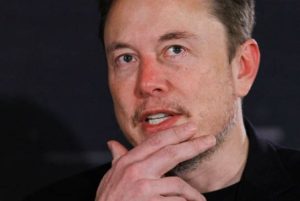Elon Musk’s Racist Remarks Draw Swift Criticism from Civil Rights Advocates
Elon Musk faced severe backlash for endorsing a tweet suggesting that Black students at Historically Black Colleges and Universities (HBCUs) possess lower IQs and shouldn’t pursue careers as pilots.
The controversial tweet, in which Musk intentionally distorted the acronym for “diversity, equity, and inclusion” (DEI), drew immediate condemnation from civil rights groups, who labeled Musk’s comments as racist and abhorrent.
Marc Morial, President and CEO of the National Urban League, demanded an apology, describing Musk’s statements as “pathetic.”
Musk’s tweets insinuated that HBCU students were unsuitable to become pilots, but his assertions did not withstand scrutiny.
From fabricated average IQ figures to misleading correlations between SAT scores and intelligence, Musk’s statements were devoid of factual basis.
The SpaceX CEO also made false claims about a United Airlines program, suggesting that the airline prioritized DEI hiring over safety.
Fellow billionaire Mark Cuban refuted Musk’s assertions, highlighting the program’s merit-based evaluations.
Musk’s Defiance Sparks Racism Concerns

In response to Cuban’s criticism, Musk, in a seemingly defensive manner, called him “a liar” without providing any supporting evidence.
Musk’s distorted worldview continued as he linked DEI initiatives to safety concerns, referencing a Boeing 737 MAX 9 jet incident. However, this claim lacked any basis in reality.
This isn’t the first time Musk has faced accusations of racism. A lawsuit filed by the US Equal Employment Opportunity Commission (EEOC) last year documented instances of overt racism at Tesla, Musk’s company.
The suit alleged that the company not only failed to address workplace abuse but also retaliated against employees who raised complaints.
Critics argue that Musk’s recent remarks align with a pattern of racist behavior. Just over a month ago, Musk endorsed an antisemitic conspiracy theory, garnering widespread condemnation.
In response to Musk’s comments, NAACP President and CEO Derrick Johnson emphasized the distinction between hate speech and efforts to foster diversity, equity, and inclusion.
Musk, however, remained defiant, dismissing organizations calling out his remarks as “openly racist.”
As controversy surrounds Musk’s statements, it raises questions about the accountability of influential figures in perpetuating harmful narratives and the potential consequences of such rhetoric in broader societal contexts.
